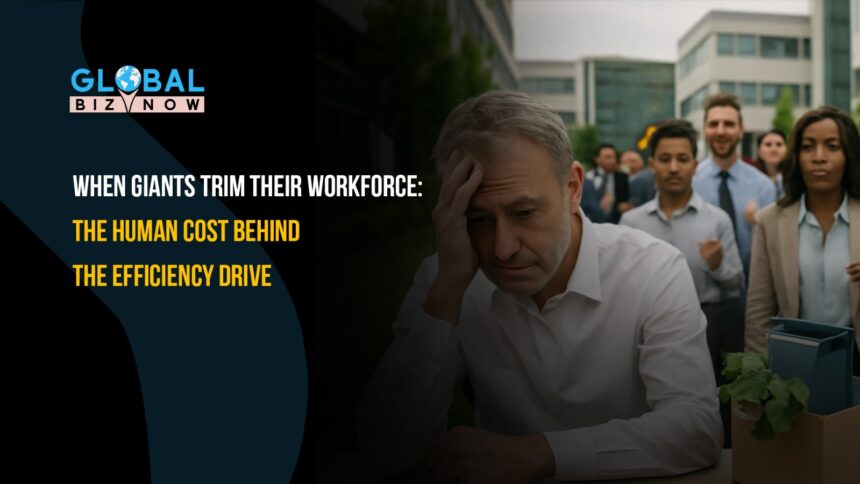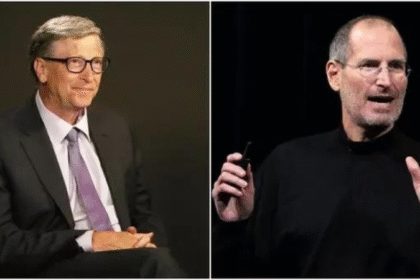When Amazon’s Senior Vice President of People Experience and Technology, Beth Galetti, addressed employees this week about another round of organizational restructuring — cutting approximately 14,000 corporate roles — it didn’t come as a surprise. Across Silicon Valley and beyond, the trend is unmistakable: Big Tech is getting smaller.
But behind the carefully worded phrases — “reducing bureaucracy,” “increasing ownership,” and “strengthening organizational agility” — lies a larger, unsettling truth: the global corporate world is quietly entering a new era where efficiency is the new empathy.
The Layoff Loop: Why Big Companies Are Cutting Despite Growth
For decades, layoffs were a red flag — a sign of crisis, revenue decline, or mismanagement. But in 2025, they’ve become a strategy, not a symptom. Amazon, Google, Meta, and Microsoft — all posting healthy profits — are still announcing job cuts.
So why are profitable corporations letting go of thousands?
The answer lies in two intertwined forces: technology and investor psychology.
First, AI automation and data-driven productivity tools are redefining operational models. The same technology that helps a company grow faster also reduces the need for large managerial layers. “The world is changing quickly,” Galetti said in her message, citing AI as the most transformative shift since the Internet. The paradox? AI makes companies leaner, but workers more replaceable.
Second, Wall Street’s obsession with “operating leverage” — doing more with less — is pushing executives to constantly prove efficiency. In boardrooms, the word “streamlining” is synonymous with “growth.” In reality, it often translates to cutting human jobs in pursuit of better quarterly numbers.
The Real Cost: Morale, Loyalty, and Lost Identity
For the people behind the badge, these restructuring waves feel less like evolution and more like erosion.
Every layoff leaves behind what economists call “survivor’s syndrome.” Employees who stay feel guilt, anxiety, and distrust. The workplace culture that once thrived on innovation becomes cautious, mechanical, and transactional.
A senior Amazon engineer, speaking anonymously, told GlobalBizNow, “We’re told it’s about agility and speed. But when teams shrink, people start playing safe. Nobody wants to take risks when their own role might be next.”
The irony is palpable: the very pursuit of innovation often kills the spirit that fuels it.
The Broader Problem: Efficiency Without Empathy
Today’s corporate playbook is dominated by metrics — efficiency ratios, EBITDA margins, and productivity indexes. But what it lacks is a metric for human sustainability.
Tech giants often cite “organizational health” as a goal, yet the definition rarely includes mental well-being or community belonging. In the rush to stay “nimble,” companies risk becoming hollow — fast-moving but emotionally disconnected.
When 14,000 employees are told they’re part of a “reduction to get stronger,” it begs the question — stronger for whom?
What Can Change: Rebuilding from the Inside Out
If companies want to build resilience — not just revenue — they need a new social contract between leadership and workforce. Here’s what that could look like:
- From Downsizing to Redeploying:
Instead of terminating roles, create structured “retraining pipelines” that move employees into emerging divisions like AI, data ethics, or sustainability. Fewer jobs lost, more talent retained. - Transparent Transition Programs:
Amazon’s 90-day internal job search window is a start. But what if corporations built shared “talent bridges” across industries — allowing laid-off workers to transition between ecosystems without hitting unemployment? - Measure Human Value, Not Just Efficiency:
Include morale, inclusivity, and learning agility as KPIs in executive scorecards. A company is only as sustainable as the emotional health of its people. - Rethink Leadership Incentives:
Tie executive bonuses to workforce development, not just headcount reduction. Reward leaders for reallocation and innovation, not attrition.
The Human Startup
Amazon’s leadership says it wants to operate like “the world’s largest startup.” But startups are not defined by their efficiency — they’re defined by their belief in people.
The next decade will test which corporations truly embody that spirit. The AI revolution will make businesses faster, yes — but if it also makes them colder, we risk building companies that run like machines but forget how to care like humans.
The future of work cannot just be smart — it must also be humane. GBN


















